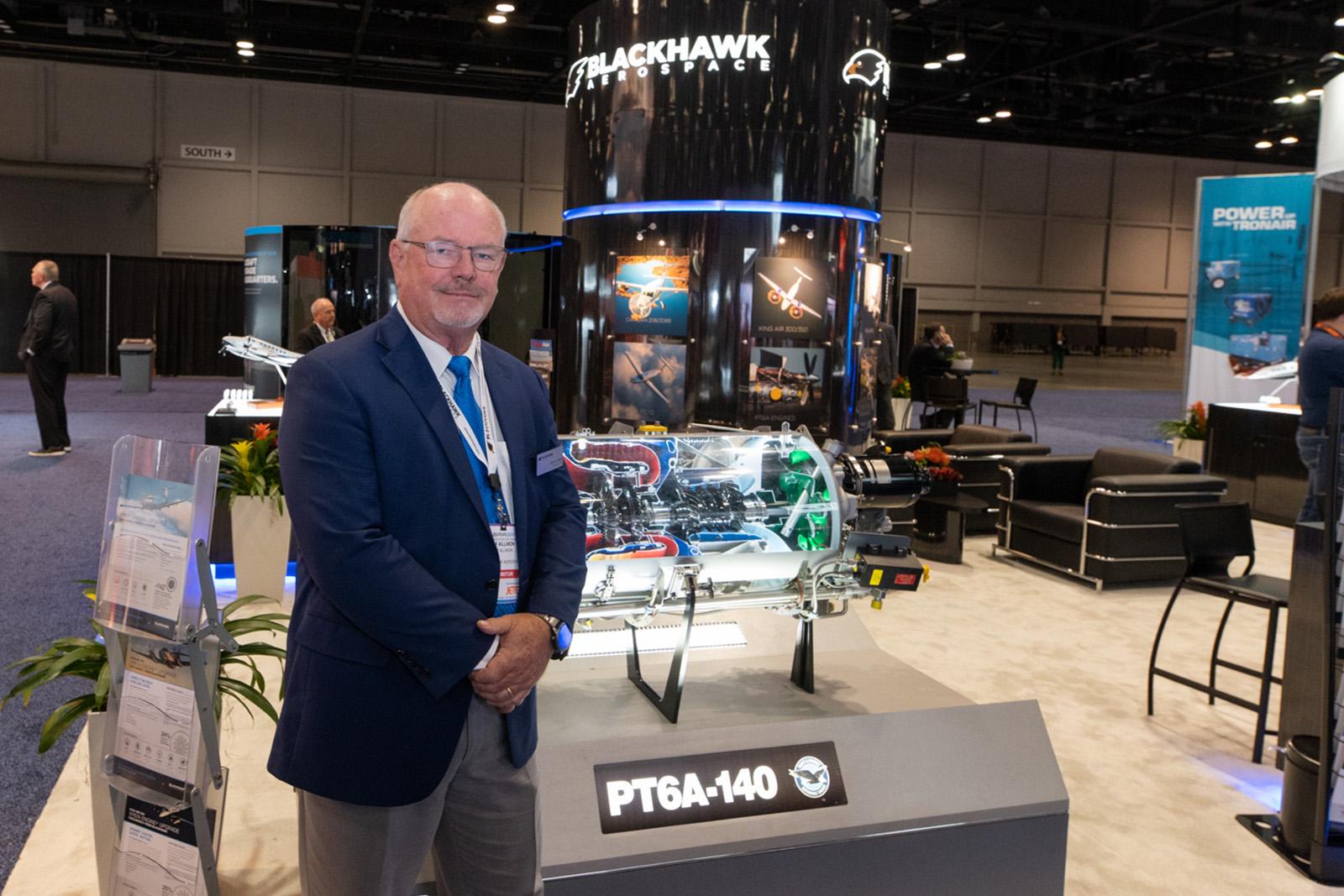
Jim Allmon, president and CEO of reengining specialist Blackhawk Aerospace.
Aftermarket engine upgrade specialist Blackhawk Aerospace is developing a retrofit for the Daher TBM 700 turboprop single as it begins flight tests of its latest improvement project—a Pilatus PC-12 configured with the Pratt & Whitney Canada (P&WC) PT6A-67P.
The El Paso, Texas-based modification specialist says the reengined PC-12 is expected to receive FAA certification in the second quarter of 2023 with European Union Aviation Safety Agency (EASA) approval due to follow shortly after. Dubbed by Blackhawk as the XP67P upgrade, the retrofit replaces the original factory-installed PT6A-67B and has so far attracted five orders, with more expected to come in the pipeline.
“It's a higher-horsepower engine from the factory that has a higher thermodynamic rating,” says Blackhawk President and CEO Jim Allmon. “We’ve begun flight tests with the engine installed, although we didn't really start the program until September,” he adds. To date, Blackhawk has delivered almost 900 engine upgrades for Cessna 441 Conquest and Cessna 208 Caravans, Piper PA-42 Cheyennes and Beech King Airs—the latter King Air 350 retrofit program having just passed the 100-aircraft milestone.
For the immediate future Blackhawk is planning on retrofitting the P&WC PT6A-66D into older models of the TBM 700. “We probably will start in the second quarter of next year on the TBM 700 legacy aircraft—so [we are] going back to cover pre-TBM 850 models including the TBM 700A, B and C's. We’re getting buy-in from Daher—they're okay with it,” says Allmon.
Originally powered by the PT6A-64C, the upgraded model will offer better cruise performance. “Everybody that we've spoken to on the TBM program wants to go faster, and we can give them 300 kt. pretty easily,” he adds.
Further into the future Blackhawk is also looking at potential hybrid-electric propulsion options. “We've actually been approached by Pratt and they’re going to design a hybrid engine. I’m not at liberty to say what kind, but we will be the integrator. It's probably three or four years down the road or something, but it'll be a hybrid turboprop application,” says Allmon.
Pratt is already developing a thermal engine for the Dash 8-100-based hybrid-electric propulsion demonstrator, but has yet to provide any details of the engine design or any clues as to whether a variant of this concept would be suitable for smaller hybrid turboprop replacements. The C$163 million ($120 million) project, which includes De Havilland Canada, is due to start flight tests beginning in 2024. The demonstrator is a successor to Project 804, an earlier hybrid-demonstrator plan which was subsequently sidelined and targets a 30% reduction in fuel burn and CO2 emissions on a 250-mi. sector compared to a current state-of-the-art regional.
